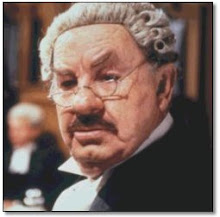Tuesday, May 30, 2006
KELO ADDRESSED BY OK SUPREME COURT In an opinion released for publication today, the Oklahoma Supreme Court held that citizens of Oklahoma are entitled to a higher level of protection against eminent domain proceedings for economic development alone than is provided under current Federal case law: ¶19 To the extent that our determination may be interpreted as inconsistent with the U.S. Supreme Court's holding in Kelo v. City of New London, today's pronouncement is reached on the basis of Oklahoma's own special constitutional eminent domain provisions, Art. 2, §§ 23 & 24 of the Oklahoma Constitution, which we conclude provide private property protection to Oklahoma citizens beyond that which is afforded them by the Fifth Amendment to the U.S. Constitution. In other words, we determine that our state constitutional eminent domain provisions place more stringent limitation on governmental eminent domain power than the limitations imposed by the Fifth Amendment of the U.S. Constitution.19 We join other jurisdictions including Arizona, Arkansas, Florida, Illinois, South Carolina, Michigan, and Maine, which have reached similar determinations on state constitutional grounds.20 Other states have similarly restricted the government's eminent domain power through state statute.21 ¶20 While the Takings Clause of the U.S. Constitution provides "nor shall private property be taken for public use without just compensation," the Oklahoma Constitution places further restrictions by expressly stating "[n]o private property shall be taken or damaged for private use, with or without compensation." OKLA. CONST. art. 2, § 23 (emphasis added). That constitutional provision additionally expressly lists the exceptions for common law easements by necessity and drains for agricultural, mining and sanitary purposes. The proposed purpose of economic development, with its incidental enhancement of tax and employment benefits to the surrounding community, clearly does not fall within any of these categories of express constitutional exceptions to the general rule against the taking of private property for private use. To permit the inclusion of economic development alone in the category of "public use" or "public purpose" would blur the line between "public" and "private" so as to render our constitutional limitations on the power of eminent domain a nullity. If property ownership in Oklahoma is to remain what the framers of our Constitution intended it to be, this we must not do. An interesting side note concerning attorneys fees and costs is found in Justice Taylor's concurrence. Taylor apparently objected to the Court's grant of appeal related attorney's fees to the Washington, D.C. public interest law firm Institute for Justice who handled the appeals pro-bono:¶7 An award of attorney fees may be dictated under the rule of stare decisis. However, any award of attorney fees to the landowner should be granted ONLY if the landowners prove they were unequivocally and contractually obligated to pay attorney fees at the time the legal services were rendered and that the landowners have actually paid the fees. If the landowners have not incurred attorney fees or if the landowners were not contractually obligated to pay attorney fees, then they are not entitled to an award of attorney fees. If the landowner's fees and costs of defense were defrayed by a private organization, then the landowner is not entitled to any award of attorney fees and costs. This is a common attitude among many judges and juries. While they are grudgingly willing to grant attorneys fees when there is an actual obligation to pay them, they are much less likely to grant them when the services are performed pro-bono, their logic being that pro-bono attorneys are paid a salary by the organization employing them and have thus already been paid for their services. This places individual pro-bono attorneys who are not paid a salary in a very difficult position. Not only has the attorney performed valuable services for which he will not be paid by his client but the court is also loathe to even pay him statutory fees earned because his services had no monetary value to their recipient and produced no financial obligation upon him. And, since only direct expenses incurred in performing pro-bono work are deductible not the value of the work itself, the individual pro-bono attorney can't even write off the value of services rendered. Justices Edmondson and Winchester also noted concern about the attorneys fees award in their dissent.In summary, this is a good opinion that will last until some Oklahoma developer challenges it in Federal Court. Until then, Oklahoma citizens have a little less to worry about concerning their homes and property but pro-bono attorneys should be put on notice that their fees will face increased scrutiny by some members of the court. --30-- |


0 Comments:
Post a Comment
<< Home